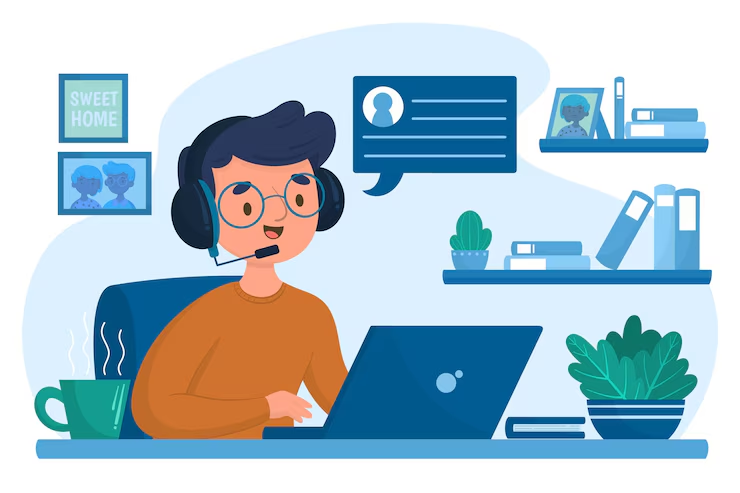Want to start your Own Business but do not have enough money? You’re not alone! Many successful entrepreneurs started with nothing but a good idea and a whole lot of hustle.
This guide is for anyone who wants to start a business with limited capital, whether you’re a teenager, a kid with big dreams, or someone looking for a side hustle. We’ll dive into 10 practical business ideas that require minimal investment and have the potential to grow into something substantial.
The Power of Passion & Resourcefulness
Remember, money isn’t everything. The most successful entrepreneurs are driven by passion, creativity, and resourcefulness. With a little ingenuity and a lot of hard work, you can build a profitable business from scratch.
Here’s what we’ll cover:
- The Importance of a Business Plan (Even with No Money)
- 10 Money-Free Business Ideas to Get You Started
- Tips for Marketing Your Business on a Budget
- Important Resources for Aspiring Entrepreneurs
Quick Navigation
ToggleThe Importance of a Business Plan (Even with No Money)
A business plan is your roadmap to success. It helps you define your goals, target market, and strategies. Even if you’re starting with no money, it’s still crucial to have a well-thought-out plan.
Here’s what your business plan should include:
- Executive Summary: Here’s the message you want to convey. Summarise your business strategy. Describe the problem you are solving, your target customer, and your ultimate ambitions. This portion should be compelling enough to grab the interest of everyone reading it.
- Company Description: This is where you get into the heart of your business. Outline your mission statement, which highlights the purpose and values that drive your business. Clearly identify the items or services you provide, emphasizing the essential characteristics and benefits. Emphasize your unique selling proposition (USP), which distinguishes your company from the competition and makes it stand out in the marketplace.
- Market Analysis: Conduct deep research to better understand the environment in which your business operates. Identify your target audience: Who are your ideal customers? What are their demands, choices, and purchasing habits? Analyze your competitors: who are your direct and indirect rivals? What are their strengths and weaknesses? Learn about market trends, growth prospects, and any potential challenges you may face.
- Marketing Plan: This is your plan for reaching out to the audience you are targeting and marketing your business. Outline your marketing channels: how will you engage with your customers? Will you use social media, email marketing, content marketing, or traditional advertising? Describe your messaging: What important messages will you convey to your target audience? How will you position your brand in the marketplace? Consider your budget and allocate resources efficiently.
- Financial Projections: This part outlines the financial foundation of your company. Prepare realistic revenue predictions – how much income do you expect to generate? Project your expenses: what are your fixed and variable costs? Consider crucial financial measures such as profit margins, breakeven point, and return on investment (ROI). These estimates will allow you to make more educated financial decisions and measure your progress toward your goals.
10 Businesses You Can Start Without Money:
1. Freelance Writing and Editing:

- Products/Services: Website content, blog posts, articles, ebooks, social media captions, copywriting, proofreading, editing.
- How to start:
- Showcase your skills: Create a portfolio of your best work to display on your website or online profile.
- Network with potential clients: Join online writing communities, connect with businesses on LinkedIn, and reach out to clients directly.
- Find freelance platforms: Sites like Upwork, Fiverr, and ProBlogger can connect you with clients looking for writers and editors.
2. Virtual Assistant:

- Products/Services: Administrative tasks (scheduling, email management, data entry), social media management, customer service, bookkeeping, research, and project management.
- How to start:
- Identify your strengths: What administrative or technical tasks are you good at?
- Create a service package: Outline the services you offer and their pricing.
- Find clients: Use online job boards, and networking websites, or reach out to businesses directly.
3. Social Media Manager:
- Products/Services: Content creation, scheduling, engagement, advertising, analytics.
- How to start:
- Build a portfolio: Manage your own social media accounts or offer free services to small businesses to demonstrate your expertise.
- Develop strong social media skills: Learn about different platforms, content strategies, and social media advertising.
- Network with businesses: Reach out to local businesses or those in your niche to offer your services.
4. Online Tutoring:

- Products/Services: Tutoring in subjects like math, science, English, languages, and standardized test prep.
- How to start:
- Identify your subject matter expertise: What subjects are you passionate about and proficient in?
- Create online learning materials: Develop engaging lessons, quizzes, and resources to support your students.
- Promote your services: Utilize online platforms like TutorMe, Skooli, or Chegg Tutors.
5. E-commerce (Dropshipping):

- Products/Services: Clothing, accessories, home goods, electronics, beauty products, pet supplies, novelty items.
- How to start:
- Find a reliable dropshipping supplier: Research and select a supplier with high-quality products and good customer service.
- Create an online store: Use platforms like Shopify, Etsy, or Amazon to set up your e-commerce website.
- Market your products: Utilize social media, SEO, and paid advertising to reach your target audience.
6. Photography/Videography:

- Products/Services: Weddings, portraits, product shots, real estate photography, event videography, and social media content creation.
- How to start:
- Invest in a good camera: Even used cameras can be affordable and deliver high-quality results.
- Build your portfolio: Start taking photos of friends, family, or local events to showcase your skills.
- Network with potential clients: Reach out to businesses, event planners, or community organizations.
7. Event Planning:

- Products/Services: Weddings, corporate events, conferences, festivals, parties, fundraisers.
- How to start:
- Network with local businesses: Connect with vendors, venues, and other event professionals in your area.
- Offer your services to friends and family: Start with smaller events to gain experience and build your reputation.
- Create a website or online presence: Showcase your expertise and past events to attract potential clients.
8. Blogging/Content Creation:

- Products/Services: Lifestyle, travel, food, fitness, personal finance, tech, reviews, educational content.
- How to start:
- Choose a niche: What are you passionate about? What topics do you have expertise in?
- Create high-quality content: Write engaging articles, shoot interesting videos, or record captivating podcasts.
- Promote your blog/channel: Use social media, email marketing, and guest blogging to reach a wider audience.
9. Handmade Products:

- Products/Services: Jewelry, crafts, soaps, candles, clothing, artwork, home décor, accessories, baked goods.
- How to start:
- Develop your crafting skills: Practice your craft, experiment with different techniques, and find your unique style.
- Find a platform to sell: Use Etsy, Shopify, Amazon Handmade, or local craft fairs to reach your customers.
- Promote your products: Use social media, online marketplaces, and local events to showcase your work.
10. Pet Sitting/Dog Walking:

- Products/Services: Dog walking, pet sitting, overnight care, pet transportation.
- How to start:
- Build your reputation: Offer free services to friends or neighbors to gain experience and testimonials.
- Market your services locally: Post flyers, use social media, and network with pet owners in your area.
- Consider insurance: Get pet sitter insurance for liability protection.
Tips for Marketing Your Business on a Budget:
- Leverage Social Media: Create free accounts on platforms where your ideal customers spend time. Whether it’s Facebook, Instagram, Twitter, LinkedIn, or Pinterest, regularly post engaging content that showcases your brand personality, shares valuable insights, and encourages interaction. Respond to comments, participate in relevant conversations, and build genuine connections with your audience.
- Network with Other Entrepreneurs: Connect with other entrepreneurs in your industry, both online and offline. Attend industry events, join relevant online groups, and participate in virtual networking sessions. Sharing tips, resources, and potential leads can create mutually beneficial relationships that expand your reach and generate referrals.
- Offer Free Consultations or Samples: Provide potential customers with a taste of your expertise and value by offering free consultations, samples, or introductory workshops. This demonstrates your commitment to their success, builds trust, and gives them a chance to experience your offerings firsthand.
- Create a Free Website: Create a simple yet professional website using free platforms like Wix, Squarespace, or WordPress. Include your contact information, a brief overview of your business, and links to your social media profiles. A well-designed website provides credibility and serves as a central hub for potential customers to learn more about you.
- Use Email Marketing: Build an email list by offering a free incentive, such as a downloadable guide or a discount code. Regularly send out newsletters that provide valuable content, updates on your business, and special offers. Email marketing allows you to stay top-of-mind with your audience, nurturing relationships and fostering loyalty.
Important Resources for Aspiring Entrepreneurs:
Free Courses to Master Your Skills:
Copywriting Quick Start: Top FREE Writing Tools & Hacks
Boost your copywriting skills and become a better writer with the internet’s best free writing tools and hacks. Enroll Now
Secret Sauce of Great Writing
Ex-Wall Street Journal Editor Teaches How To Make Your Blogs, Books & Business Writing Sparkle. Enroll Now
Virtual Assistant Management Course
Learn how to manage your virtual assistant or freelancing business. Enroll Now
How To Build Your Social Media Marketing Strategy
Steps for building your social media marketing strategy so that you can achieve your brand and business goals. Enroll Now
Social Media & Content Marketing with Viral Content Bee
Viral & social media marketing with ViralContentBee, a free platform facilitating the REAL “social media buzz”. Enroll Now
How to Create an Online Course: The Official Udemy Course
Use our recommended best practices to plan, produce, and publish a well-designed, high-quality Udemy course. Enroll Now
Teach English online
How to start teaching English online. Enroll Now
WordPress Essentials / E-Commerce Website / DropShipping
WordPress / WooCommerce / DropShipping / E-Commrece. Enroll Now
How To Start Dropshipping On Shopify In 2024
Unlocking Dropshipping Success on Shopify In The New Year! Enroll Now
Become a Better Filmmaker (Even on a Budget)
Learn Videography and Cinematography (for the budget-minded). Enroll Now
Event Planning and Management
Details About Event Planning and Management. Enroll Now
Social Media for Special Events
Essential Tips & Tricks for Using Social Media to Increase Exhibitor ROI. Taught by Best-Selling Author Eric Schwartzman. Enroll Now
How to Monetize a Blog
Everything you need to know in order to monetize a blog (without being a computer expert). Enroll Now
Learn How To Start A Dog Walking Business
Everything you need to know to start your dog walking business today! Great for teens or adults looking for extra income. Enroll Now
Learn How To Sell Online Products
Top 2 Hotselling Online Products. Enroll Now
The Takeaway:
The key to starting a business with no money is to leverage your existing skills, passions, and resources. Think outside the box, be creative, and don’t be afraid to hustle. With hard work and dedication, you can turn your dreams into reality!
FAQ:
1. Can I really start a business with no money?
Yes, it is possible to start a business with no money. Many successful entrepreneurs began with minimal or no initial investment. The key is leveraging your skills, creativity, and available resources. Utilize free online tools, and barter services, and adopt cost-effective marketing strategies. Focus on businesses that require little to no capital, such as freelancing, consulting, or drop shipping.
2. What types of businesses can be started with no money?
Several businesses can be started with little to no initial investment, including:
- Freelancing (writing, graphic design, web development)
- Consulting (business, financial, marketing)
- Dropshipping
- Social media management
- Online tutoring
- Content creation (blogging, YouTube)
- Affiliate marketing
- Virtual assistance
- Handmade crafts (using existing materials)
3. How do I validate my business idea without spending money?
Validating your business idea involves confirming that there is a market for your product or service. Here’s how you can do it for free:
- Conduct surveys using free tools like Google Forms or SurveyMonkey.
- Engage in forums and social media groups relevant to your niche.
- Offer your product or service to a small group of people for feedback.
- Create a simple landing page using free website builders and gauge interest through email sign-ups.
4. What are the first steps to take when starting a business with no money?
The initial steps include:
- Identify Your Skills and Resources: Assess what skills and resources you already have.
- Conduct Market Research: Understand your target audience and competitors.
- Create a Business Plan: Outline your business model, target market, marketing strategies, and financial projections.
- Leverage Free Tools: Use free software for website creation, accounting, and project management.
- Network and Collaborate: Join relevant communities and seek partnerships.
5. How can I market my business for free?
Effective free marketing strategies include:
- Social Media: Create engaging content on platforms like Facebook, Instagram, Twitter, and LinkedIn.
- Content Marketing: Start a blog or YouTube channel to share valuable information.
- Email Marketing: Build an email list and send newsletters using free email marketing tools.
- SEO: Optimize your website and content for search engines to attract organic traffic.
- Networking: Attend free webinars, join online communities, and collaborate with influencers.
6. How do I build a website without spending money?
You can create a website for free using platforms like:
- WordPress.com: Offers free website hosting with basic features.
- Wix: Provides drag-and-drop website building with free hosting.
- Weebly: Another user-friendly option with free plans.
- Google My Business: Create a simple, free website through your Google My Business account. Focus on creating a clean, professional-looking site with essential information about your business.
7. How can I get funding if I need it later?
If you need funding as your business grows, consider these options:
- Bootstrapping: Reinvest profits back into the business.
- Crowdfunding: Use platforms like Kickstarter or Indiegogo to raise funds from the public.
- Grants: Apply for small business grants available through government and private organizations.
- Angel Investors: Seek out investors who provide capital in exchange for equity.
- Small Business Loans: Look into microloans or low-interest small business loans.
8. What skills are essential for starting a business with no money?
Key skills include:
- Creativity: Innovate and find cost-effective solutions.
- Marketing: Understand how to promote your business effectively.
- Sales: Ability to sell your product or service.
- Financial Management: Budgeting and managing finances efficiently.
- Networking: Building relationships with potential clients, partners, and mentors.
9. How do I network effectively without spending money?
Effective free networking strategies include:
- Online Communities: Join forums, LinkedIn groups, and social media groups related to your industry.
- Local Meetups: Attend free local events, workshops, and meetups.
- Webinars and Virtual Conferences: Participate in online events to connect with industry professionals.
- Volunteering: Offer your services for free or volunteer to gain experience and connections.
10. What free tools can I use to manage my business?
There are numerous free tools available:
- Project Management: Trello, Asana
- Communication: Slack, Zoom
- Accounting: Wave, Zoho Books
- Design: Canva, GIMP
- Website Analytics: Google Analytics
- Social Media Management: Hootsuite, Buffer
11. How do I handle legal aspects without money?
For legal matters, you can:
- Use Online Resources: Websites like LegalZoom offer affordable legal services.
- DIY: Use free templates for contracts and agreements from reputable sources.
- Local Resources: Many local government websites provide free business resources and advice.
- Consultation Services: Some legal firms offer free initial consultations or pro bono services.
12. Can I start an online business without money?
Absolutely, many online businesses require little to no initial investment. Examples include:
- Blogging: Start a blog and monetize it through ads and affiliate marketing.
- YouTube Channel: Create and share videos on YouTube, earning through ad revenue.
- Dropshipping: Sell products online without holding inventory.
- Freelancing: Offer your skills and services on platforms like Upwork or Fiverr.
- Digital Products: Create and sell e-books, online courses, or digital art.
13. What are the common challenges when starting a business with no money?
Common challenges include:
- Limited Resources: Difficulty accessing tools and materials needed for operations.
- Marketing Constraints: Limited budget for promoting your business.
- Cash Flow Issues: Managing finances without a buffer.
- Scaling: Challenges in growing the business without additional investment.
- Time Management: Balancing business tasks with personal responsibilities.
14. How do I stay motivated when starting a business with no money?
Staying motivated can be tough, but here are some tips:
- Set Clear Goals: Define your short-term and long-term objectives.
- Celebrate Milestones: Acknowledge and reward your achievements.
- Stay Positive: Focus on your progress and learn from setbacks.
- Seek Support: Join entrepreneurial communities for encouragement and advice.
- Keep Learning: Continuously educate yourself to improve your skills and knowledge.
15. How can I make my business profitable quickly without spending money?
To achieve profitability quickly:
- Focus on Sales: Prioritize activities that directly generate revenue.
- Offer High-Demand Services: Identify and provide services that are in high demand.
- Minimize Expenses: Keep overheads low by utilizing free tools and resources.
- Leverage Word of Mouth: Encourage satisfied customers to refer others.
- Diversify Income Streams: Explore multiple ways to earn, such as upselling or cross-selling products/services.


